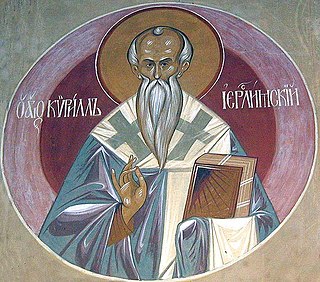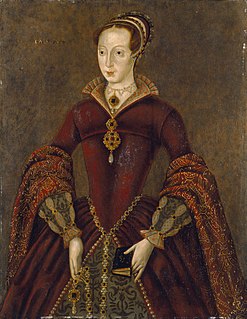A Quote by Martin Luther
[Christ's] mission and work it is to help against sin and death, to justify and bring life. He has placed his help in baptism and the Sacrament [i.e., communion/Eucharist/Lord's supper], and incorporated it in the Word and preaching. To our eyes Baptism [capitalized in original] appears to be nothing more than ordinary water, and the Sacrament of Christ's body and blood simple bread and wine, like other bread and wine, and the sermon, hot air from a man's mouth. But we must not trust what our eyes see.
Quote Topics
Against
Air
Appears
Baptism
Blood
Body
Bread
Bread And Wine
Bring
Christ
Communion
Death
Eucharist
Eyes
Help
His
Hot
Hot Air
Justify
Life
Like
Lord
Lord's Supper
Man
Mission
More
Mouth
Must
Nothing
Ordinary
Original
Other
Our
Placed
Preaching
Sacrament
See
Sermon
Simple
Sin
Supper
Than
Trust
Water
Wine
Word
Work
Related Quotes
I [i.e., God] have given you baptism as a gift for the forgiveness of sins, and preach to you unceasingly by word of mouth concerning this treasure, sealing it with the Sacrament of my body and blood, so that you need never doubt. True, it seems little and insignificant that by the washing of water, the Word, and the Sacrament this should all be effected. But don't let your eyes deceive you.
Since Christ Himself said in reference to the bread: "This is My Body," who will dare remain hesitant? And since with equal clarity He asserted: "This is My Blood," who will dare entertain any doubt and say that this is not His Blood?... You have been taught these truths. Imbued with the certainty of faith, you know that what seems to be bread is not bread but the Body of Christ, although it seems to be bread when tasted. You also know that what seems to be wine is not wine but the Blood of Christ although it does taste like wine.
The Church was redeemed at the price of Christ's blood. Jew or Greek, it makes no difference; but if he has believed, he must circumcise himself from his sins [in baptism (Col. 2:11-12)] so that he can be saved . . . for no one ascends into the kingdom of heaven except through the sacrament of baptism . . . "Unless a man be born again of water and the Holy Spirit, he cannot enter the kingdom of God"
And according as we say, "Our Father," because He is The Father of those who understand and believe; so also we call it "our Bread," because Christ is The Bread of those who are in union with His Body. And we ask that this Bread should be given to us daily, that we who are in Christ, and daily receive The Eucharist for the Food of Salvation, may not by the interposition of some heinous sin...be separated from Christ's Body.
The Eucharist is not only a particularly intense expression of the reality of the Church's life, but also in a sense its fountainhead. The Eucharist feeds and forms the Church: 'Because there is one bread, we who are many are one body, for we all partake of the one bread' (1 Cor 10:17, RSV). Because of this vital link with the sacrament of the Body and Blood of the Lord, the mystery of the Church is savored, proclaimed, and lived supremely in the Eucharist.
And just as He appeared before the holy Apostles in true flesh, so now He has us see Him in the Sacred Bread. Looking at Him with the eyes of their flesh, they saw only His Flesh, but regarding Him with the eyes of the spirit, they believed that He was God. In like manner, as we see bread and wine with our bodily eyes, let us see and believe firmly that it is His Most Holy Body and Blood, True and Living.For in this way our Lord is ever present among those who believe in him, according to what He said: "Behold, I am with you all days even to the consummation of the world."
The earthly form of Christ is the form that died on the cross. The image of God is the image of Christ crucified. It is to this image that the life of the disciples must be conformed; in other words, they must be conformed to his death (Phil 3.10, Rom 6.4) The Christian life is a life of crucifixion (Gal 2.19) In baptism the form of Christ's death is impressed upon his own. They are dead to the flesh and to sin, they are dead to the world, and the world is dead to them (Gal 6.14). Anybody living in the strength of Christ's baptism lives in the strength of Christ's death.
The Holy Ghost converts [us] from carnality to spirituality. It cleanses, heals, and purifies the soul. . . . . Faith in the Lord Jesus Christ, repentance, and water baptism are all preliminary and prerequisite to it, but [the baptism of fire] is the consummation. To receive [this baptism of fire] is to have one's garments washed in the atoning blood of Jesus Christ.
Humans need Jesus Christ as a necessity and not as a luxury. You may be pleased to have flowers, but you must have bread. . . . Jesus is not a phenomenon, He is bread: Christ is not a curiosity, He is water. As surely as we cannot live without bread, we cannot live truly without Christ: If we know not Christ we are not living, our movement is a mechanical flutter, our pulse is but the stirring of an animal life.
On the altar you are looking at the same thing as you saw there last night. You have not heard, however, what this is, what it signifies, or about the greatness of the reality of which it is a sacrament. Your eyes are looking at bread and cup. This is the evidence before your physical sight. But your faith must be instructed concerning it- this bread being Christ 's Body and the cup containing His Blood. Though perhaps these words may be enough to initiate faith, faith must be further instructed in accordance with the Prophet's words: 'Believe that you may understand'
Do you wish to learn the secret of true Eucharistic prayer? Consider, then, all the mysteries in the light of the Blessed Sacrament. It is a divine prism through which they can all be studied. The Holy Eucharist is, indeed, 'Jesus Christ, yesterday, and today, and the same forever' (Heb 13:8). In this Sacrament He glorifies all the mysteries of His life and prolongs, as it were, the exercise of all His virtues. The Eucharist is, in a word, the great Mystery of our faith to which all Catholic truths lead








































